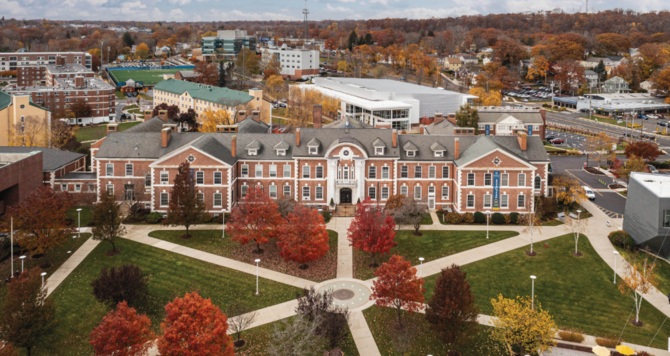US-Trained Saudis Bring Global Skills Home to Accelerate National Growth
Al – Khobar – Saudi professionals educated in the United States are contributing significantly to the Kingdom’s industrial and economic transformation.
Their experiences abroad are shaping new capabilities, strengthening leadership pipelines, and supporting national priorities under Vision 2030.
Current data shows that more than 14,000 Saudi students are enrolled in US universities.
These students are pursuing advanced training in fields such as engineering, aviation, medicine, and technology to meet the demands of the Kingdom’s evolving sectors.
The Saudi Cultural Mission in Washington has emphasized targeted placements in top-tier institutions.
The goal is to build a highly skilled talent pool equipped with global expertise and practical experience.
A new academic partnership has also been announced between the University of New Haven and Saudi Arabia’s Takamol Holding.
This collaboration aims to develop leadership and workforce programs aligned with the Kingdom’s transformation plans.
Among the many success stories are the paths of Majdi Al-Amri and Rakan Al-Obaid, two professionals whose American education helped shape their careers in aviation.
Their journeys illustrate how international learning is translating into national impact.
Majdi Al-Amri, now director of risk management at the General Authority of Civil Aviation, described his US study experience as transformative.
He said his time at the University of New Haven helped build his academic capabilities, confidence, and global perspective.
He credited professors who guided him through a rigorous academic environment.
Their mentorship, he said, inspired him to pursue excellence and sharpen his professional goals.
Al-Amri returned to Saudi Arabia determined to apply what he had learned.
He progressed to become general manager of aerodrome standards and played a key role in establishing GACA’s Enterprise Risk Management Department in 2023.
His work drew directly from the aviation safety and regulatory training he received in the US.
He noted that the experience continues to influence his approach to leadership and national development.
For pilot Rakan Al-Obaid of Saudia Group, the US experience blended classroom theory with real-world flying.
He enrolled at the Florida Institute of Technology under a sponsorship program supporting future aviators.
He selected the institute for its aviation curriculum integrated with live flight training at Melbourne International Airport.
This allowed him to apply theoretical knowledge immediately in an operational cockpit setting.
Al-Obaid said the lessons expanded far beyond technical skills.
Courses in communication, critical thinking, and aviation safety taught him to view aviation as a human-centered system.
His advanced flight training reinforced the importance of quick decisions and team coordination.
He described these experiences as essential in shaping his professional mindset.
After graduating, he joined NEOM’s early planning team for its airline and airport projects.
He later became an Airbus A320 pilot with Saudia, participating in scheduled operations, Hajj flights, and new aircraft deliveries.
Looking ahead, he proposed establishing a joint center to support Saudi students in developing leadership and communication skills.
He suggested this could be launched within a year to help prepare future scholars and graduates.
Al-Amri also offered recommendations for strengthening the link between international education and employment opportunities.
He suggested creating a “Future Leaders Track” to connect US-trained Saudis with private-sector roles through structured mentorships and certifications.
He said such a program would help young professionals apply their global training across key Saudi sectors.
It would also contribute to building a sustainable leadership pipeline for the Kingdom’s long-term economic transformation.
Saudi researchers abroad are also enhancing the Kingdom’s scientific presence at major institutions.
Scholars such as Dr. Huda Asiri, Dr. Reem Khoja, and Dr. Faisal Nawab are contributing to global research fields while representing the nation’s growing capabilities.
Their experiences—from academic laboratories to aviation command decks—showcase the diverse ways US education is empowering Saudis.
Their return home continues to strengthen industries, inspire peers, and support national goals.



